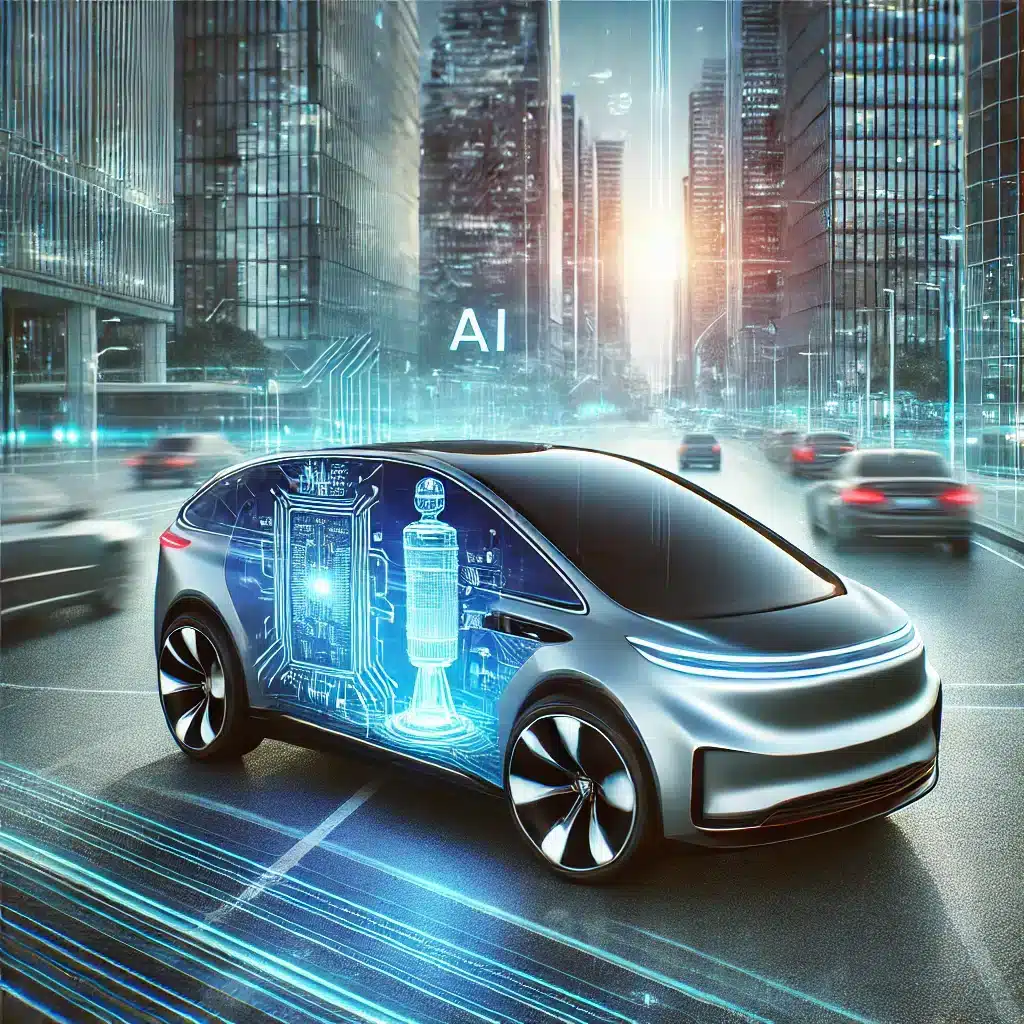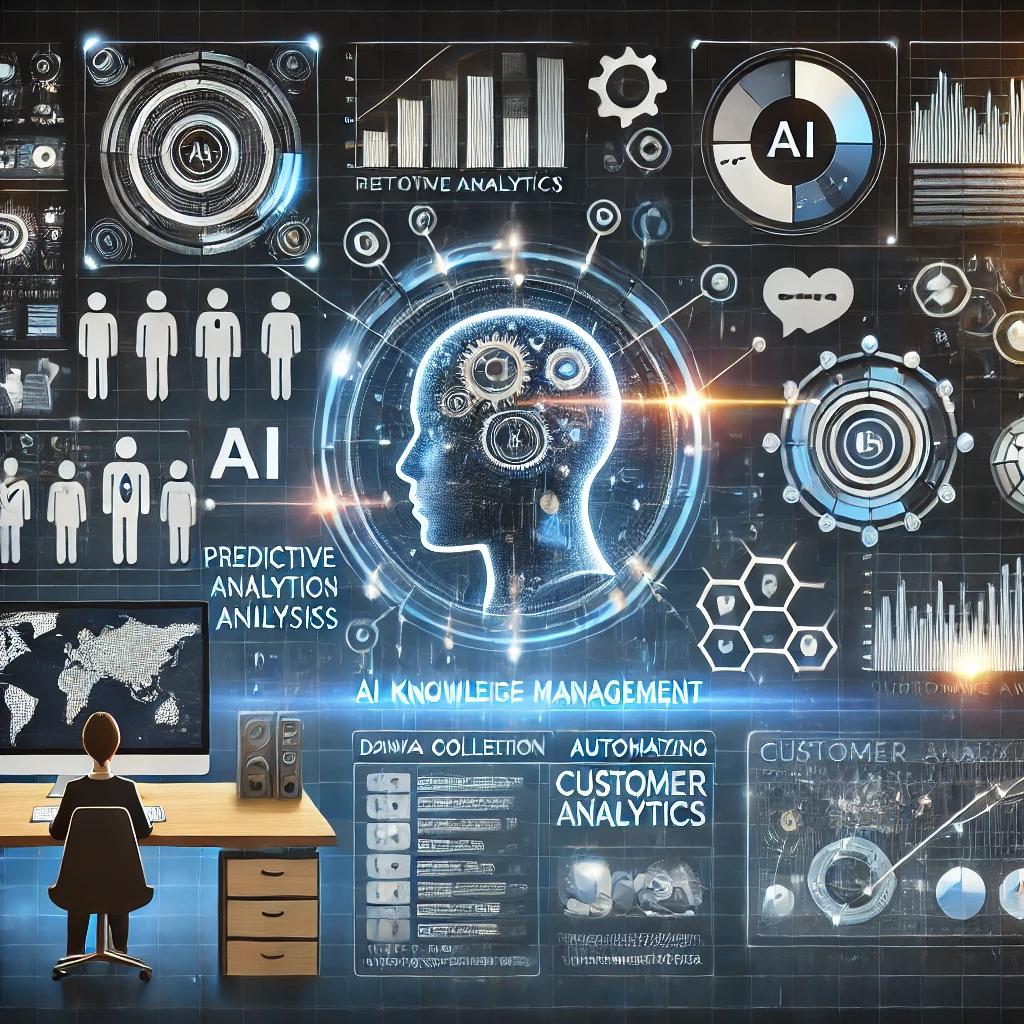Artificial intelligence has emerged as a transformative force in the rapidly changing landscape of customer service, and artificial intelligence (AI) has emerged as a transformative force, reshaping how businesses interact with their customers. From assisting with customer inquiries to providing personalized recommendations, AI technologies have enhanced customer experience in remarkable ways. This article explores the evolution of AI in customer service, focusing on how AI chatbots are revolutionizing customer interactions and what the future holds for this technology.
What is the Role of AI in Customer Service?
How Does AI Transform Customer Support?
AI plays a pivotal role in transforming customer support by eliminating repetitive tasks and providing instant answers to customer queries. Leverage AI systems to drive service delivery for businesses: this will ensure that businesses can respond to customer questions much faster. AI can analyze customer data through machine learning algorithms to understand behavior patterns. This allows businesses to predict the needs of customers and prevent problems before they happen. The transition from reaction to production real-time real-time is important in creating a seamless customer experience where issues are resolved before they become bigger problems.
What Are the Benefits of AI in Customer Interactions?
The advantages of AI in customer interactions are many. First and foremost, AI increases customer satisfaction as it gives a timely response to customers’ queries. With the AI chatbots available 24/7, customers can be served at any time. It therefore improves customer loyalty and has higher customer satisfaction scores. In addition, AI will personalize customer interaction about previous behavior and preferences, hence making the customer feel valued and understood. This means business strategies can shift in real time based on customer feedback to maintain up-to-date customer expectations.
How Can AI Improve Customer Satisfaction?
AI enhances the satisfaction of customers through regular and stable support. Waiting times are reduced, immediate answers to queries, and an issue with an AI solution for customer support. In addition, AI can answer complex customer queries that may ask for deep knowledge, thus not letting the customers get inaccurate or unhelpful information. Through continuous updating based on customer interactions, AI systems can improve how they respond to customers thereby making customer engagement more impactful with time. This responsive nature is not only improving how satisfied customers are but also building trust among customers and businesses in the long run.

How Are AI Chatbots Changing Customer Experience?
What Are AI Chatbots and How Do They Work?
AI chatbots are intelligent software programs designed to simulate human conversation through text or voice interactions. Using natural language processing (NLP) and machine learning, AI chatbots can understand and respond to customer inquiries in real-time. They can be integrated into various communication channels, such as websites, social media platforms, and messaging apps, providing a versatile tool for customer engagement. By utilizing generative AI, chatbots can generate personalized responses based on customer data, creating a more engaging and tailored experience for users.
How Do Chatbots Enhance Customer Engagement?
Chatbots significantly enhance customer engagement by providing instant access to information and support. This immediacy encourages customers to interact with the brand more frequently, thereby increasing engagement levels. By facilitating smooth conversations and offering personalized recommendations, chatbots can guide customers through their purchasing journeys, effectively improving the overall customer experience. Furthermore, chatbots can solicit customer feedback after interactions, allowing businesses to gather valuable insights into customer behavior and preferences, which can be used to refine future interactions.
What Impact Do Chatbots Have on Customer Loyalty?
The impact of chatbots on customer loyalty is profound. Giving faster and more efficient solutions to their respective concerns enables the development of trust and reliability toward a particular brand with the help of a chatbot. Consistent positive relationships formed in interaction with a chatbot by customers will surely call for repeated purchases in its name. Moreover, previous interactions and preferences retained with the help of chatbots create a more personal atmosphere that makes customers return frequently enhancing loyalty toward brands. This loyalty is important in today‘s competitive marketplace where acquiring new customers can prove to be more expensive than maintaining the customer base.
What Is the Evolution of Customer Care with AI?
How Has AI Evolved in Customer Service Over the Years?
Advancements in technology and methods have made the evolution of AI in customer service experience. Traditionally, customer support relied entirely on human agents, which affected the response time and speed at which replies were given. With the advent of AI technologies, businesses started automating routine activities, thus improving the efficiency of their services. Years went by, and AI systems improved in complexity and depth so that they could support far more complex interactions with a customer. Now, an AI system does not merely answer simple questions but is much more involved in processing data collected from customers and predicting future behavior.
What Are Key Milestones in the Evolution of Customer Support?
Several key milestones have defined the evolution of customer support through AI. The first was the introduction of chatbots, which marked a significant turning point in business support by allowing businesses to provide 24/7 support without constant human oversight. Machine learning algorithms developed further allowed AI to learn from past interactions, improving the accuracy and relevance of responses. In more recent times, AI has been used for sentiment analysis, which has allowed businesses to measure customer feedback and alter their strategies. These developments are part of a greater trend toward more data-driven customer service, where information about customer interactions is used to make business decisions.
How Does the Future of Customer Care Look with AI?
The future of customer care with AI seems bright as technology continues to evolve. More integration is likely to follow in all and every field of customer service using AI systems for fuller, more personalized support. Innovations like voice recognition and advanced NLP will make it possible for chatbots to speak with people more naturally. As businesses collect more customer data, AI will play a critical role in analyzing this information to predict customer needs and preferences. This is going to usher in a truly proactive customer service approach.
How Can Businesses Use AI to Enhance Customer Satisfaction?
What AI Solutions Can Transform Customer Service Delivery?
Businesses can utilize various AI solutions to transform customer service delivery. One of the most effective implementations for improving customer satisfaction is to introduce AI chatbots, which allow instant support for customer queries. Moreover, the business can gain insights into customers’ behavior through AI-driven analytics tools and, based on that, tailor services according to specific customer requirements. AI-powered CRM systems can further facilitate communication between businesses and their customers, ensuring that each interaction is recorded and analyzed to improve future interactions.
How to Analyze Customer Data with AI for Better Support?
To analyze customer data effectively with AI, businesses should implement robust AI analytics platforms that can process large volumes of data. These platforms can identify trends in customer behavior, such as common issues or frequently asked questions, which can inform training for customer service representatives. By using AI to segment customers based on their behaviors and preferences, businesses can create targeted marketing campaigns and personalized customer experiences. Ultimately, this data-driven approach leads to improved customer support and higher overall customer satisfaction.
What Are Effective Strategies for Implementing AI Solutions?
It requires proper strategy implementation to be effective. Clear objectives should be defined for AI implementation in businesses, such as response time or customer engagement. Train employees who work with AI solutions. They need to understand how to collaborate efficiently with AI systems. Additional advice should be that businesses need to always watch out for the performance of the AI solutions and refine them on a real-time basis using customer feedback for improvement. By doing these, businesses can benefit extensively from AI in customer services and drive customer satisfaction as well.
What Should We Expect in the Future of Customer Service with AI?
How Will AI Technologies Shape Customer Expectations?
This would shape customer expectations profoundly through the evolution of AI technologies. Increasingly, customers would be expecting quick, personalized, and efficient service, which will have little patience for delays or inaccuracies. AI in customer service is going to set the bar on responsiveness and, consequently, make businesses take on such technologies just to keep up. In addition, as a client become accustomed to AI-structured interactions, they will request even more complex systems able to predict their demand long before they can frame one.
What Are the Trends in AI-Driven Customer Experience?
There are numerous emerging trends in AI-based customer experience. One dominant trend is the integration of AI with other technologies, such as augmented reality and virtual reality, to come up with immersive customer experiences. Besides this, ethical AI practice is now a significant emphasis of business since customers have been shown to build trust in such companies for their data and transparency. Further, integration of AI into omnichannel strategy has been an increasingly popular phenomenon because the same will provide for seamless customer experience across multiple touchpoints.



